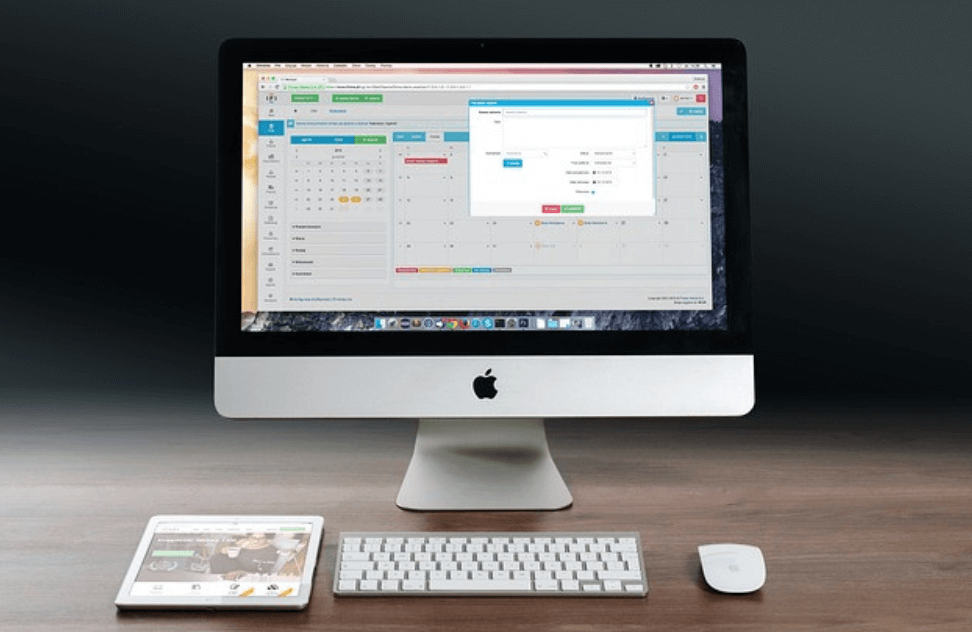How to Monetize your Skills Online

Monetizing your skills online can be a great way to earn money and leverage your expertise. Here are some ways to monetize your skills online:
- Freelancing: You can offer your services as a freelancer on platforms like Upwork, Fiverr, or Freelancer. You can offer your skills in areas such as writing, design, programming, social media management, virtual assistance, and many more.
- Online Courses: You can create and sell online courses on platforms like Udemy, Skillshare, or Teachable. You can create courses on topics that you are an expert in and teach others the skills that you possess.
- Coaching/Consulting: You can offer coaching or consulting services to people who want to learn from your expertise. You can offer your services through your own website, social media, or platforms like Clarity.fm.
- Sell Digital Products: If you have expertise in creating digital products such as e-books, templates, or software, you can sell them online through platforms like Gumroad or Etsy.
- YouTube Channel: If you have skills that can be demonstrated through videos, you can create a YouTube channel and monetize it through ad revenue, sponsored content, or affiliate marketing.
- Blogging: If you have skills in writing or content creation, you can start a blog and monetize it through ads, affiliate marketing, or sponsored content.
It’s important to choose the monetization method that best fits your skills and expertise.
You can experiment with different methods to see which one works best for you.

How to Monetize your Website without Google Adsense
There are several ways to monetize a website without using Google AdSense. Here are some options:
- Affiliate Marketing: You can promote products or services of other companies through affiliate marketing. You can earn a commission on every sale made through your referral link.
- Sponsored Content: You can create sponsored content for companies that are relevant to your website niche. This can include blog posts, videos, or social media posts. You can charge a fee for creating and promoting this content.
- Sell Your Own Products: You can create and sell your own products on your website. This can include physical or digital products, such as ebooks, courses, or merchandise.
- Offer Services: If you have a skill or expertise in a particular area, you can offer services on your website. This can include consulting, coaching, or freelance services.
- Display Ads: You can sell ad space on your website directly to advertisers. You can reach out to relevant companies and offer them ad space on your website.
- Membership or Subscription: You can offer premium content, tools, or services to your audience for a monthly or annual fee.
Remember, the key to successful monetization is providing value to your audience. Choose a monetization method that aligns with your website niche and offers value to your audience.

How to Monetize your Website with Google Adsense
Monetizing your website with Google AdSense is a great way to earn revenue from the traffic that comes to your website. Here are the steps to get started:
- Sign up for Google AdSense: Go to the AdSense website and sign up for an account. You will need to provide some basic information about your website, such as its URL and the type of content it features.
- Get approved: After you submit your application, Google AdSense will review your website to ensure that it meets their policies and guidelines. This process can take anywhere from a few days to a few weeks.
- Create Ad Units: Once you’re approved, you can log in to your AdSense account and create ad units. Ad units are the ads that will appear on your website. You can customize the size, color, and placement of the ads to match your website’s design.
- Place Ad Code on Your Website: After you’ve created your ad units, Google AdSense will provide you with a code that you need to copy and paste onto your website. This code will allow the ads to appear on your website.
- Start Earning Money: Once you’ve placed the ad code on your website, you can start earning money whenever someone clicks on one of the ads.
It’s important to note that your earnings will depend on a variety of factors, such as the number of visitors to your website and the types of ads that are displayed.
To maximize your earnings, it’s important to create high-quality content that will attract a lot of visitors to your website, and to experiment with different ad formats and placements to see what works best for your audience.

How to Monetize your Skills Online as a Freelancer
As a freelancer, there are several ways to monetize your skills online:
- Freelancing Platforms: Join freelancing platforms such as Upwork, Fiverr, Freelancer, or Guru. These platforms connect freelancers with clients who are looking for specific skills, such as writing, web development, graphic design, programming, or any other skill you possess.
- Social Media: Use social media platforms to showcase your skills and build a following. This can help you attract clients who are interested in your skills.
- Your Own Website: Create a website to showcase your skills and services. This can include a portfolio of your work, client testimonials, and a list of your services.
- Networking: Attend industry conferences, meetups, and networking events to connect with potential clients and other freelancers in your field.
- Referrals: Ask your existing clients for referrals to their colleagues or other businesses that may need your skills.
- Job Boards: Check job boards such as ProBlogger, BloggingPro, or FreelanceWriting for freelance job opportunities.
It’s important to market yourself effectively and have a strong online presence to attract clients and monetize your skills as a freelancer.
Freelance jobs
There are a variety of freelance jobs available online, ranging from writing and design to programming and administrative tasks.
Here are some of the most common freelance jobs:
- Writing and Content Creation: This includes freelance writing jobs for blogs, websites, and publications, as well as content creation for social media, video, and podcasts.
- Graphic Design: Freelance graphic designers create designs for websites, marketing materials, logos, and other visual content.
- Web Development: Freelance web developers create and maintain websites for businesses and organizations.
- Programming and Software Development: Freelance programmers and software developers create software, applications, and other digital products for clients.
- Administrative Support: Freelance administrative assistants provide support to businesses and individuals, including data entry, customer service, scheduling, and other tasks.
- Marketing and Public Relations: Freelance marketers and public relations professionals help businesses with branding, social media, email marketing, and other marketing and communication tasks.
- Translation and Language Services: Freelance translators and language service providers offer translation and interpretation services for businesses and individuals.
There are many online job platforms where you can find freelance jobs, such as Upwork, Freelancer, Fiverr, and Guru.
You can also network with potential clients through social media and industry events.

Popular Ways of Website Monetization
Website monetization refers to the process of earning revenue from a website. There are several ways to monetize a website, and each method has its pros and cons.
In this article, we will discuss the most common website monetization methods in detail.
Advertising:
Advertising is the most common way to monetize a website. Advertisers pay website owners to place ads on their website. The website owner earns money every time a visitor clicks on an ad or views the ad. There are different types of ads, including display ads, text ads, video ads, and native ads.
Pros: Advertising is easy to set up, and it can generate a significant amount of revenue.
Cons: Ads can be annoying for visitors, and ad-blockers can reduce revenue.
E-commerce:
E-commerce is the sale of goods or services directly on a website. Website owners can sell their own products or products from other companies through their website.
Pros: E-commerce can generate significant revenue, and it allows website owners to build a loyal customer base.
Cons: E-commerce requires a significant investment in time and money to set up, and it requires ongoing maintenance and marketing efforts.
Subscription model:
A subscription model is when website owners charge a fee for access to their website’s content or services. The fee can be charged on a monthly or yearly basis.
Pros: The subscription model can generate a steady and predictable revenue stream, and it allows website owners to build a loyal community.
Cons: The subscription model may limit the website’s reach, and it requires a significant investment in content creation and maintenance.

Pros and Cons of Website Monetization
Here are some pros and cons of website monetization:
Pros:
- Generate revenue: The primary benefit of website monetization is the ability to generate revenue. By monetizing your website, you can earn money from your content and use it to support your business or personal finances.
- Diversify income streams: Website monetization allows you to diversify your income streams. If you rely on a single source of income, such as a job, then website monetization can provide an additional source of revenue.
- Reach a wider audience: By monetizing your website, you can reach a wider audience. Advertisers are always looking for websites with high traffic and engagement, so monetizing your website can attract advertisers and help you grow your audience.
- Enhance user experience: Monetization can also enhance the user experience on your website. By displaying targeted ads or offering relevant products or services, you can provide a more personalized experience for your visitors.
Cons:
- Intrusive ads: One of the biggest drawbacks of website monetization is the potential for intrusive ads. Visitors may be turned off by ads that interrupt their browsing experience or are too obtrusive.
- Loss of control: When you monetize your website, you may have to give up some control over the content that appears on your site. Advertisers may have specific requirements for the types of content that they want to be associated with, which may limit your freedom to create the content that you want.
- Negative impact on user experience: In some cases, website monetization can have a negative impact on the user experience. For example, if your website is cluttered with ads or the ads are not relevant to your audience, visitors may become frustrated and leave your site.
- Reduced credibility: If you display too many ads or promote products or services that are not relevant to your audience, it can reduce your credibility as a content creator. Visitors may perceive your site as being solely focused on making money rather than providing valuable content.
In conclusion, website monetization can be a powerful tool for generating revenue and growing your audience.
However, it’s important to consider the potential drawbacks and find the right balance between monetization and user experience.
By focusing on creating high-quality content and providing value to your visitors, you can successfully monetize your website without sacrificing credibility or user experience.





Thanks for this article! You have to balance the pros and cons of every monetization type of your Internet business before launching it. I personally prefer ads, affiliate marketing and creating my own products, whether they’re physical or digital. These are the monetization tips I will adopt, as they are more in line with my marketing strategy.
Among what you’ve mentioned here, creating your own product is the best money maker online. But it’s the most difficult one because you have to put a lot of effort for creating a product that will be in high demand. It will pay off later in the best way though.
Thank you Adam for this excellent article on how to monetize your skills online! This is exactly the information I was looking for I the subject matter of my site has made it impossible to monetize using Adsense.
Obviously, I am taking advantage of various affiliate programs worked into the content of my site and also sell my own products from my Ebay store and utilize affiliate links with those as well.
I am really curious about the prospect of contracting direct with an advertiser to place advertisements on my site. Do you have any experience or a framework for how this typically works out as far as compensation?
I’m glad you like the material and I hope it will help you in your online business. It’s good to know you are using various methods. Regarding selling ad space on your site, it’s a good idea but before that you have to get a lot of traffic to your site so you charge a good price for the ad.